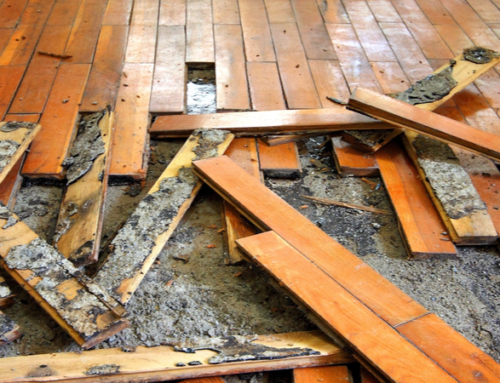Q: I purchased a home two years ago. The seller stated in the seller disclosure form that air conditioner unit was 2 years old.
My home inspector stated that he had no issues with the functioning of the unit. The house appraiser listed that the unit was a “newer” unit.
As you can see, went into this purchase believing we had a fairly new heating and air conditioning system. Today, doing our first official checkup with an outside maintenance service company, we were told that we needed a whole new unit.
I told him that it was only 4 years old now, and wondered why we’d need a new one? He thought that I was joking, as it turns out that the unit is actually 12 years old. The serial number dates back to 1995.
We are wondering who we can hold responsible for lying to us and what options we have now that it has been two years since closing.
A: Are you absolutely sure that the unit dates from 1995? Did you check the serial number yourself? Did you call the manufacturer to confirm? It is possible that this outside service contractor could be the one telling you lies, and your unit is really only 4 years old and in perfect working condition.
But let’s assume for the moment that you’ve already checked it out and in fact, the furnace is from 1995. Keep in mind, however, that while the furnace might be from 1995, some of the other components of your heating and air conditioning system might be newer. You should check them out. If some of the other components are newer, the seller may have replaced part of the system, like the compressor outside, but not the condenser coils inside the unit.
If it has only been two years since you purchased the property, and you can prove that the seller lied to you, then you can find an attorney and sue the seller to recover damages — which in this case could be the cost of replacing the furnace, or the condenser or perhaps the compressor (the part that generally sits outside) You can also sue the seller on your own in small claims court.
To win a seller disclosure case, you must prove that the seller knew, or should have known about the problem. If the seller told you the air conditioning unit was 2 years old, and it was really 10 years old, and you can provide it due to the serial number and the paperwork the seller signed during the deal, then you can proceed. You may also have other legal theories to sue the seller on, perhaps even fraud. But you should talk to an attorney about your options.
Typically, seller disclosure cases provide for attorney’s fees, so if you win, the seller will have to pay damages and the attorney cost as well. You should start gathering your information together by looking for whatever warranties or manuals about the unit that the seller gave you when you closed. Next, call the manufacturer of the unit and double check when it was made. I’m not suggesting that the outside maintenance company wasn’t accurate, but you’ll want to be sure you’re not getting a sales pitch.
Who can you sue? You can sue the seller and possibly the seller’s agent, if the agent knew that the condenser was a lot older than being advertised. You can go back to the inspector and ask why he didn’t flag the unit as being 10 years old and on its last legs. Perhaps the inspector will refund some of the fee you paid for his or her services.
But before you sue, you might just want to call the sellers and ask them to explain the situation. Tell them you’re confused by what the maintenance guy told you and wonder what you’re missing since on the seller disclosure sheet it says that the unit is only 2 years old.
Then, listen to what the sellers have to say. If they admit that they lied, ask them if they wouldn’t mind chipping in. You would be wise to talk to another heating and cooling specialist to determine if you need some of the system replaced or all of it. It might be that you’ll get a better system by replacing the condenser unit and other components now, but it may also be that you can get away with only replacing only part of the system.
But consider this: If you had found out that the condenser was 9 or 10 years old when you were in the inspection phase (your inspector could have alerted you to the age of the system, but did confirm it was in working order), would you have bought a different house? Would you have thought to negotiate an extra $500 or $1,000 into the deal? Or would you have gone forward and purchased the home knowing that the system worked but was old.
You’ve now lived in the house for another 2 years, and had two years of use out of the system. So, figure out what a fair price is and ask for that. If you can negotiate it yourself, you’ll wind up with more money. If not, then talk to a litigator specializing in seller disclosure issues, or file your own lawsuit in small claims court.




Leave A Comment